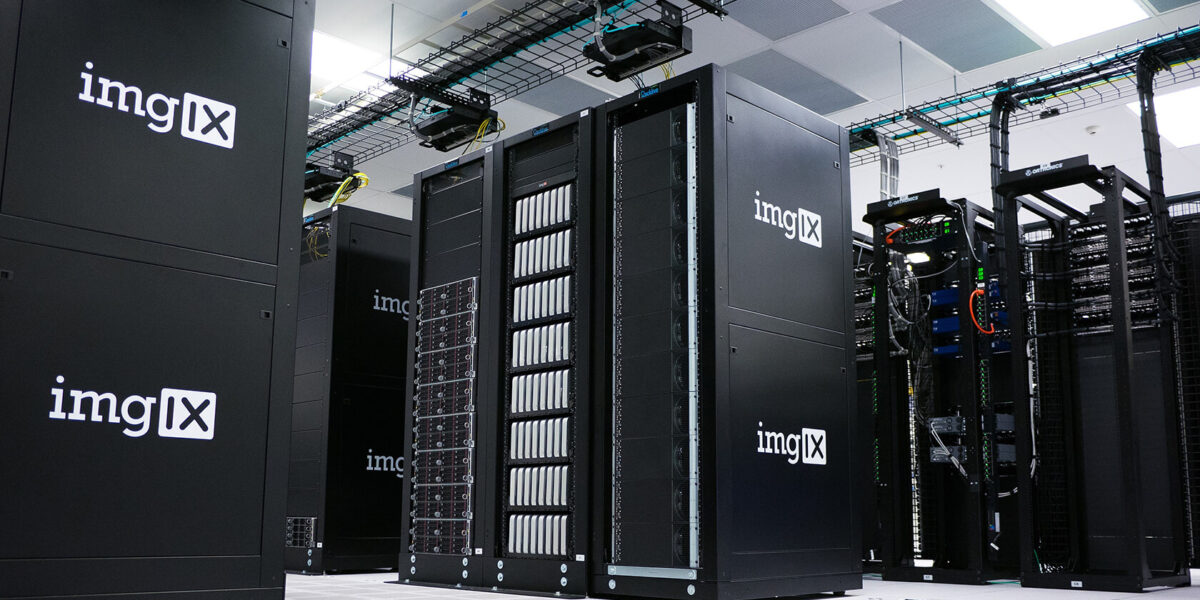Staying ahead of the curve in software development is crucial for organizations aiming to maintain a competitive edge and lead their industries. The ever-evolving landscape of app development, driven by societal and business demands, ensures that innovation remains constant.
The events of 2020 underscored the significance of remote communication and virtual alternatives, while sectors like eCommerce experienced substantial growth due to shifting economic needs and emerging development trends. With this in mind, what can we expect from the software development trends of 2023?
In this post, we will explore some of the cutting-edge trends and HiTech technologies that are poised to make a significant impact in the year ahead.
The Latest Software Development Trends
In the fast-paced world of software development, staying updated with the latest trends and innovations can be a daunting task. However, understanding and embracing these trends is essential to stay competitive. To simplify the process, we have curated a list of the top trends that are shaping the industry:
Embracing Modern Programming Languages
In the ever-evolving landscape of mobile app and web development, new and modern programming languages are gaining remarkable traction and popularity. Among these languages, Go, Kotlin, and Rust are making waves and capturing the attention of developers. Let’s explore their significance:
- Go: Also known as Golang, has gained prominence due to its simplicity, efficiency, and strong support for concurrent programming. It has become a go-to language for building scalable, high-performance applications. With its focus on readability and ease of use, Go is particularly favored for backend development and cloud-based services.
- Kotlin: Kotlin has rapidly risen to prominence as the preferred language for native Android app development. It seamlessly integrates with existing Java codebases, offers modern features, and eliminates common pain points found in Java development. With Kotlin, developers can write concise and expressive code while enjoying enhanced null safety, type interface, and overall productivity.
- Rust: Rust is an intriguing language that is generating a lot of excitement in the developer community. Its primary focus is on safety, performance, and concurrency. Rust’s strong memory safety guarantees, strict compile-time checks, and advanced error handling mechanisms make it ideal for systems programming and building reliable, low-level software. Major tech giants like Microsoft and Amazon have recognized the potential of Rust and are investing significantly in its development.
As these modern programming languages continue to gain traction, developers are embracing their unique features and advantages for various application development projects. Whether it’s the efficiency of Go, the convenience of Kotlin for Android apps, or the safety and performance benefits of Rust, these languages offer exciting possibilities for future software development endeavors. Keep a close eye on Rust as it garners increasing support and adoption from industry leaders, signifying its potential for groundbreaking advancements.
Rise of Progressive Web Apps (PWA)
Progressive Web Apps (PWAs) combine the best features of mobile apps and websites, offering users a seamless and engaging experience. Unlike traditional app development, PWAs eliminate the need for separate versions for different operating systems. Let’s explore the advantages of PWAs and how they leverage core web technologies:
- Universality and Accessibility: PWAs leverage widely adopted web technologies such as JavaScript, CSS, and HTML, making them compatible with any platform that supports web browsing. This universality allows businesses to reach a broader audience without the constraints of app stores like Google Play or the App Store.
- Offline Functionality and Home Screen Access: Unlike traditional websites, PWAs can be downloaded directly from the internet and saved to users’ home screens. This allows quick access and enhances user convenience. Additionally, PWAs have the ability to operate offline, ensuring uninterrupted functionality even in low or no internet connectivity scenarios.
- Enhanced Engagement: PWAs provide features that were traditionally associated with native apps, such as push notifications. This enables businesses to engage and re-engage users effectively, keeping them informed and connected. The seamless integration of push notifications helps drive user engagement and boosts customer loyalty.
- Cost-Effective Development: From a product design perspective, PWAs offer a cost-effective solution for businesses looking to develop cross-platform mobile apps. With PWAs, there’s no need for specialized developers in native app development. Instead, businesses can leverage their existing web development expertise to create powerful and immersive experiences for users across platforms.
By embracing the power of PWAs, businesses can deliver enhanced user experiences, leverage the ubiquity of web technologies, and reduce development costs associated with multiple native app versions. Whether it’s enabling offline functionality, sending push notifications, or eliminating platform dependencies, PWAs open up new possibilities for businesses seeking to engage their audience in a modern and accessible manner.
More Low Code Apps
The global COVID-19 pandemic has caused significant disruptions in various industries, leading to shortages in critical resources, including software development talent. In response to this challenge, low code development has emerged as a viable solution. By utilizing low code tools, businesses without extensive development expertise can create simple applications to support their operations.
While low code development offers a temporary fix to the scarcity of software engineers, it does not provide a robust long-term solution. Applications created through low code programming may lack the flexibility and scalability needed to meet the evolving demands of a business. However, given the persisting impact of the pandemic and the high demand for software engineers, low code development has gained popularity as a practical alternative.
As the world continues to grapple with the ongoing effects of the pandemic and the demand for software engineers remains high, it is anticipated that low code development will play a significant role in 2023. Although it may not be the ideal long-term strategy, leveraging low code tools allows businesses to bridge the talent gap and create functional applications to support their immediate needs.
While low code development offers a temporary solution, businesses should also consider investing in long-term strategies to address the shortage of software development talent. This may involve exploring alternative talent pools, upskilling existing team members, or partnering with external development agencies. By taking a holistic approach, businesses can navigate the current challenges and build a resilient software development ecosystem for the future.
Voice Technology Commerce
In the coming years, voice technology commerce will undoubtedly emerge as one of the most significant trends in software development. The continuous growth of voice technology, exemplified by popular services such as Google’s Assistant, Amazon’s Alexa, and Apple’s Siri, has paved the way for smart voice devices to become integral parts of our homes and offices.
The next frontier in voice technology will be its integration into commerce. We are already witnessing users leveraging Alexa to conveniently order products directly from their Amazon accounts. As more individuals adopt voice technology devices and companies recognize the potential of this expanding sales channel, voice technology commerce will become even more prevalent.
For businesses with eCommerce strategies, now is the ideal time to explore innovative ways to integrate voice technology into their operations. By being proactive and embracing this software development trend, companies can position themselves as pioneers in capitalizing on the latest technological innovations.
Voice technology commerce presents an exciting opportunity to enhance customer experiences, streamline purchasing processes, and stay ahead of the competition. While the trend is gaining momentum, there is still ample time for businesses to be early adopters and reap the benefits of this transformative technology.
By incorporating voice technology into their software development plans, businesses can unlock new avenues for growth, engage customers in novel ways, and establish themselves as frontrunners in this evolving landscape. As the influence of voice technology continues to shape the future of commerce, organizations that seize the opportunity to innovate now will undoubtedly thrive in the years to come.
Ethical AI
Artificial Intelligence (AI) solutions have made remarkable strides in providing valuable services to businesses across various industries. Advancements in Computer Vision, Machine Learning, and Natural Language Processing are fueling increased automation, reducing the reliance on human intervention.
As automation becomes more prevalent, the significance of ethical AI becomes a pressing concern. We can confidently anticipate the widespread adoption of Artificial Intelligence tools, which will drive a notable trend in software development—emphasizing the creation of ethical AI.
As AI assumes a greater role in performing functions and tasks previously handled by humans, ensuring that it operates in an ethical manner and makes responsible decisions becomes paramount. The software development industry will witness intensified competition in the AI space, fostering a concerted effort towards ethical development.
The urgency to address ethical considerations arises from the understanding that AI’s impact will extend far beyond efficiency and productivity. It will shape critical aspects of society, affecting human lives and their interactions with technology. Therefore, prioritizing ethical AI practices becomes an essential pillar of responsible development.
As AI technology continues to evolve and permeate various domains, the pursuit of ethical AI development becomes imperative. By nurturing a culture of responsible AI practices, the software development industry can pave the way for a future where AI serves as a force for good, contributing positively to society and augmenting human potential.
Continued Expansion of Internet of Things (IoT)
The Internet of Things (IoT) remains an unstoppable force, revolutionizing businesses across diverse sectors with its pervasive and valuable capabilities. With the increasing affordability of high-quality IoT devices, sensors, and systems, coupled with their growing ubiquity, IoT technology continues to extend its reach into various aspects of business operations and everyday life.
When exploring the latest software development trends, the topic of IoT consistently takes center stage. This enduring prominence speaks volumes about the long-term viability and impact of this technology. While IoT itself is not new, its development landscape continually evolves, presenting fresh trends and possibilities.
As IoT matures, developers delve deeper into refining its applications, uncovering innovative ways to harness its potential. These trends manifest in diverse areas, such as enhanced connectivity, improved data analytics, edge computing, and seamless integration with other emerging technologies.
Businesses recognize that embracing IoT empowers them to streamline operations, optimize resource allocation, and gain valuable insights for data-driven decision-making. From smart homes to industrial automation, IoT permeates every facet of our lives, delivering tangible benefits and transforming the way we interact with our surroundings.
However, as the IoT ecosystem expands, so do the challenges. Ensuring robust security measures, addressing privacy concerns, and managing the immense volume of generated data are critical considerations. Developers are continually evolving their practices to mitigate risks, fortify IoT infrastructure, and protect sensitive information.
The evolution of IoT development is a testament to its transformative potential. As it continues to evolve, we can anticipate more sophisticated applications, seamless connectivity, and innovative use cases that redefine industries and drive human progress.
For businesses and developers alike, staying informed and agile is crucial. Embracing the latest IoT trends empowers organizations to unlock new opportunities, gain a competitive edge, and forge ahead in an interconnected world.
The journey of IoT is far from over. Its dynamic nature and ever-expanding possibilities ensure that it will remain a focal point of software development, propelling industries toward a future of enhanced efficiency, unprecedented connectivity, and boundless innovation.
Summary: For effective development project management and staying at the forefront of innovation, being aware of crucial software development trends is essential. With a reliable software development partner by your side, staying updated with the latest trends becomes effortless. Embrace the power of collaboration to drive innovation and establish your position as a trailblazer in your industry.




